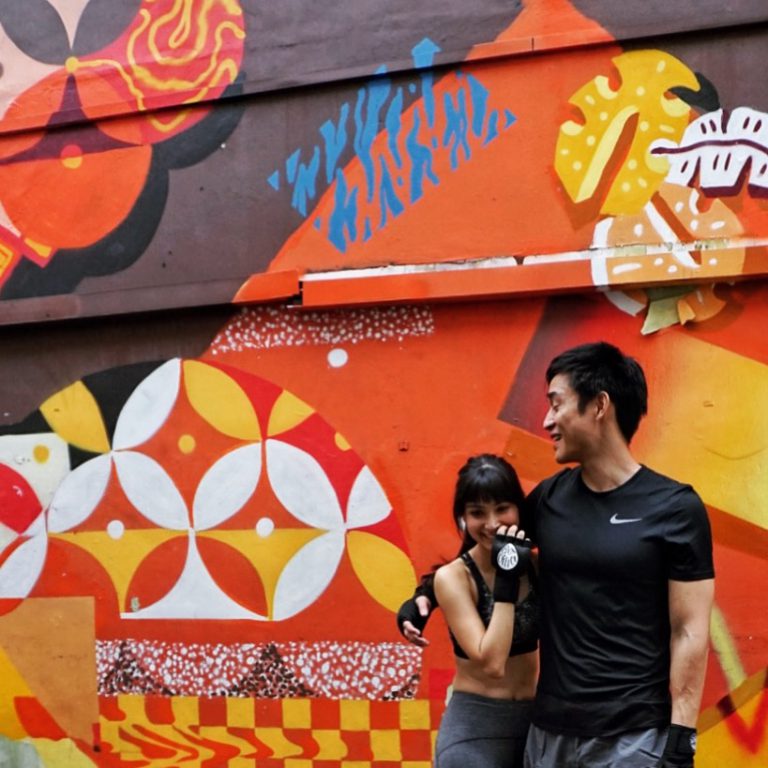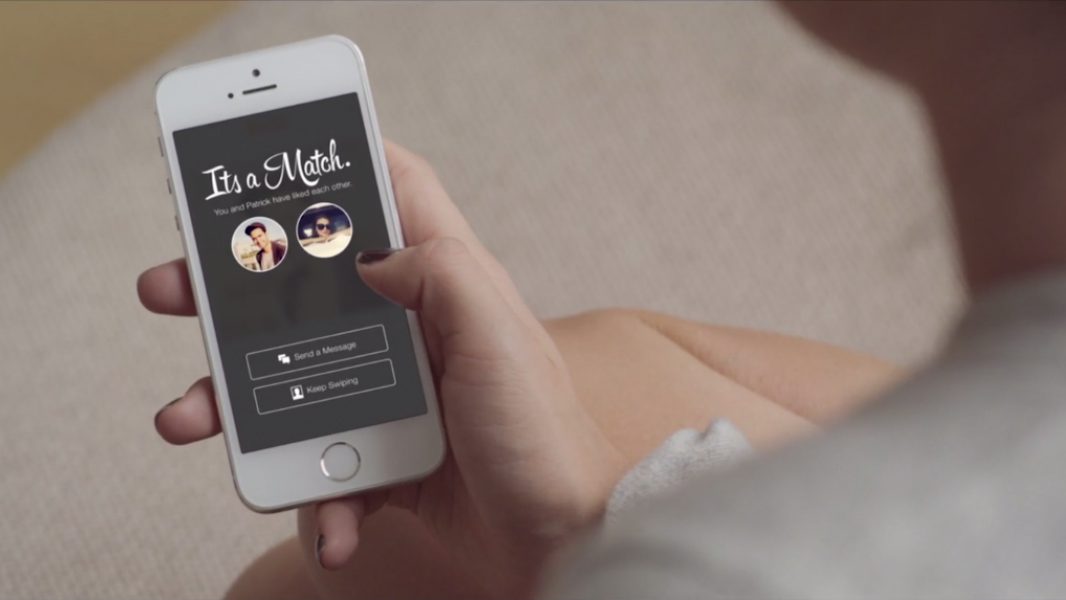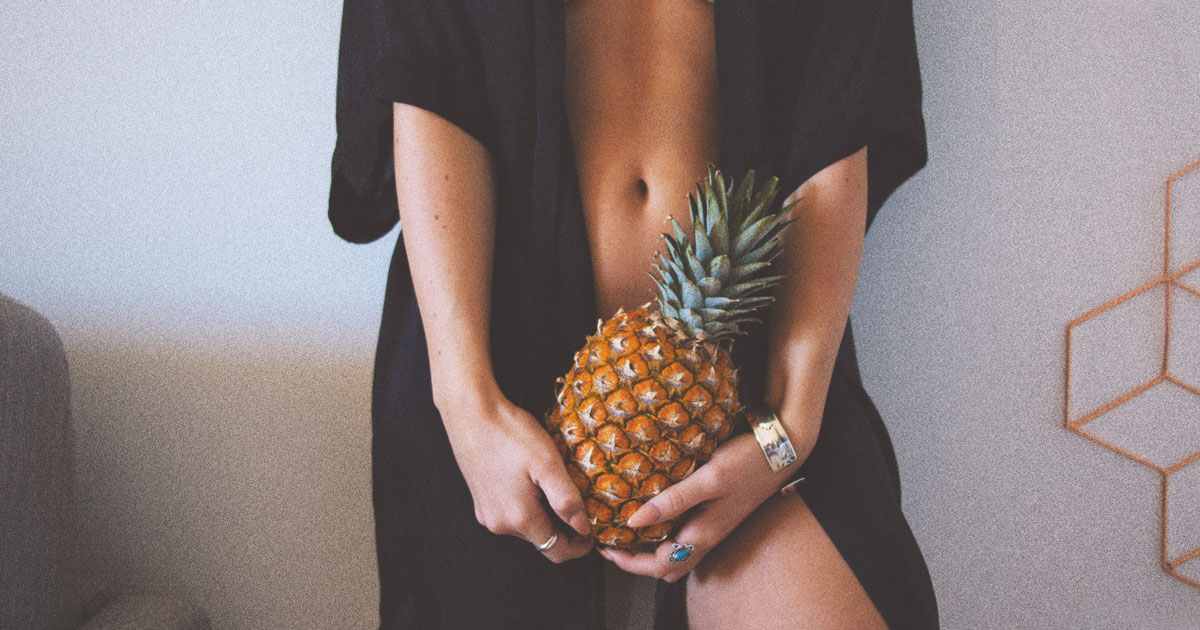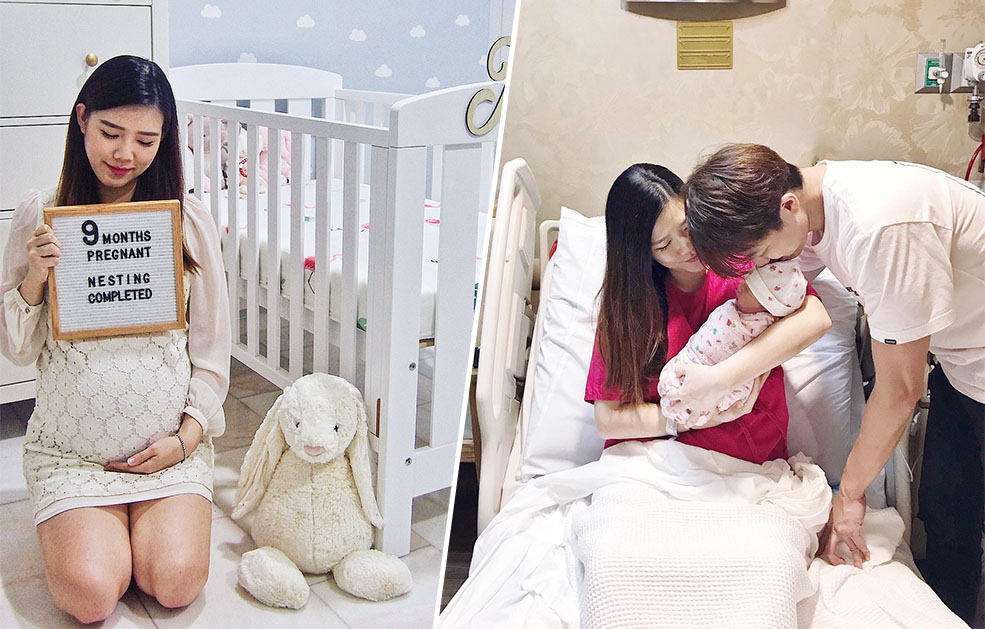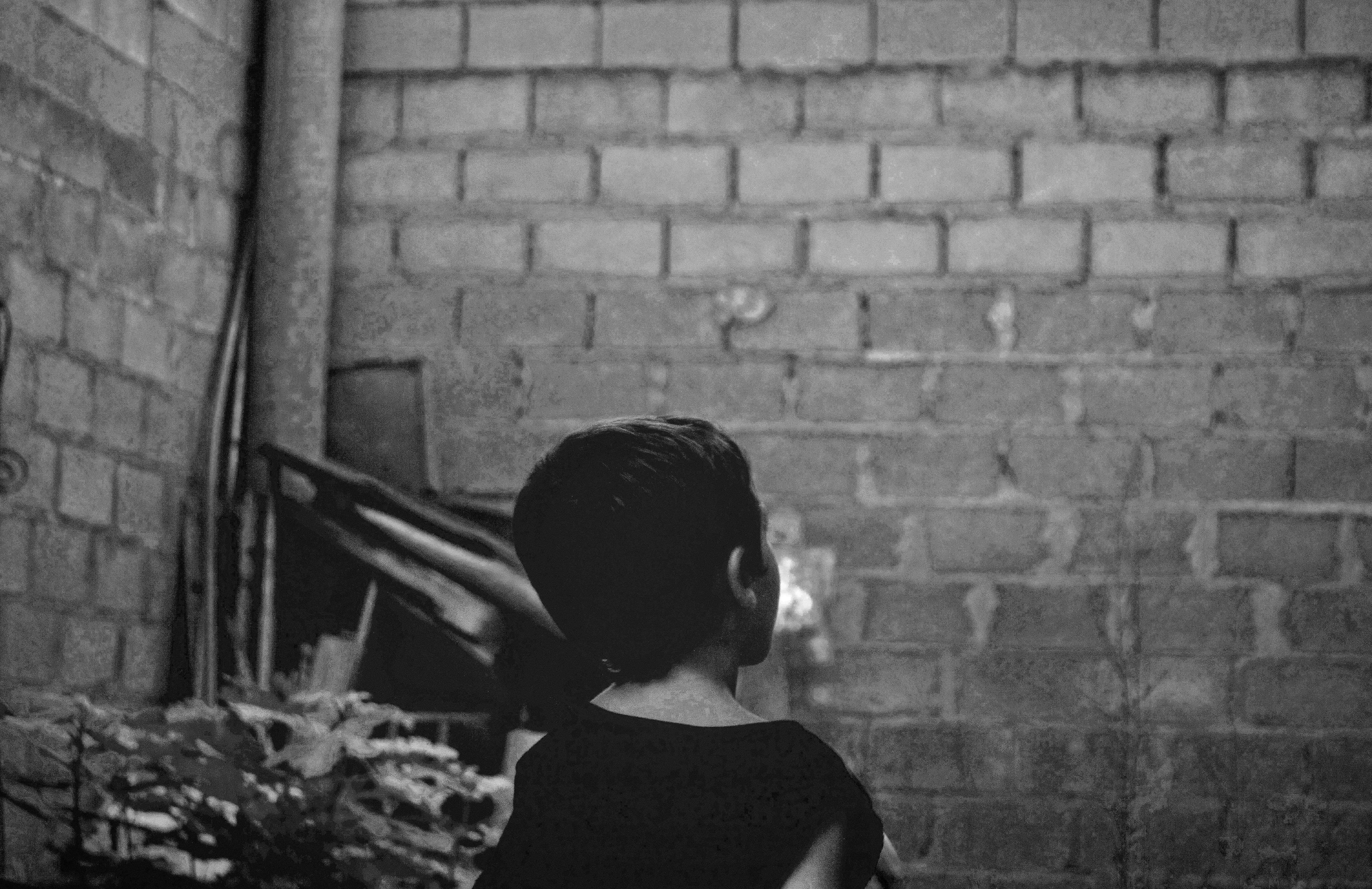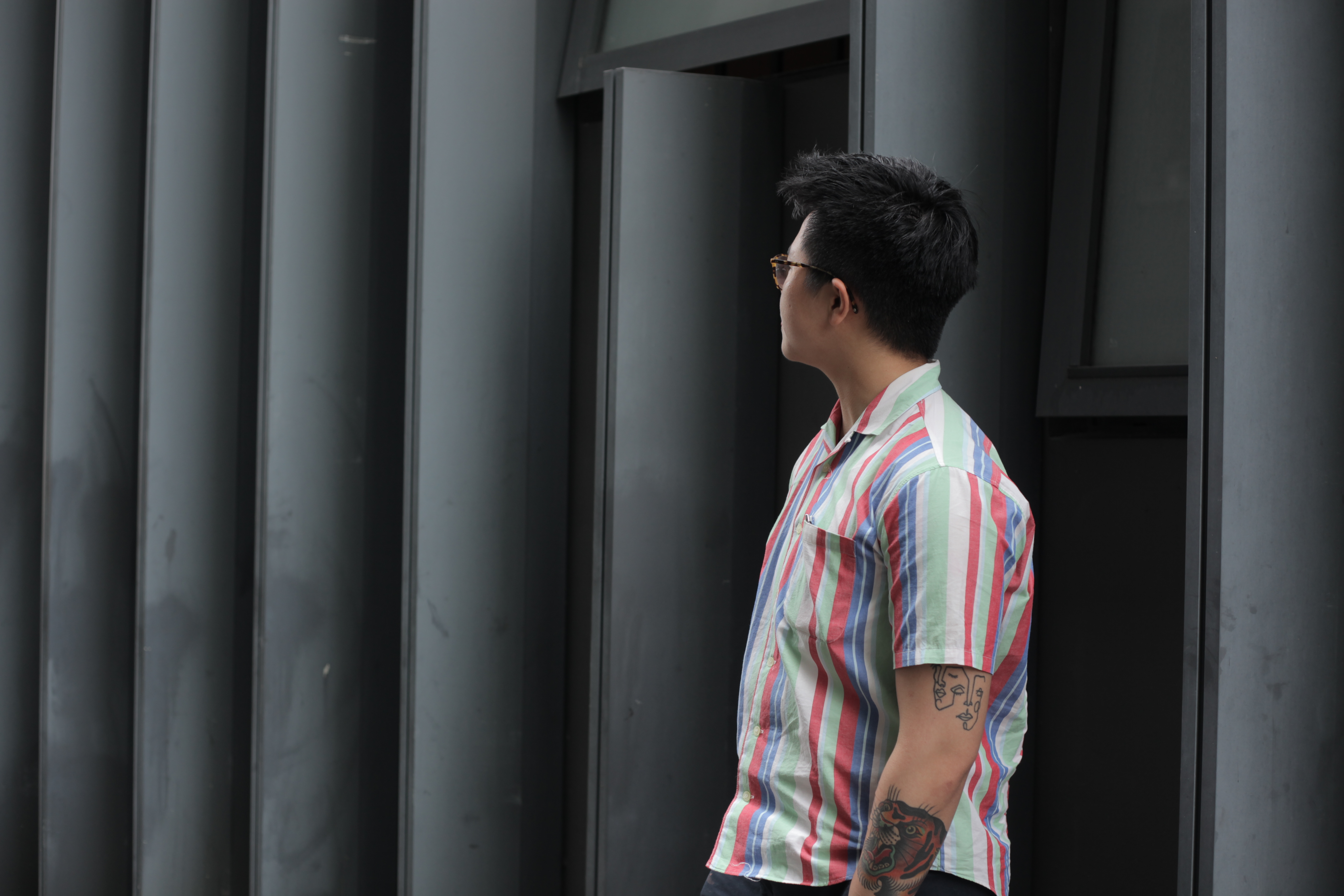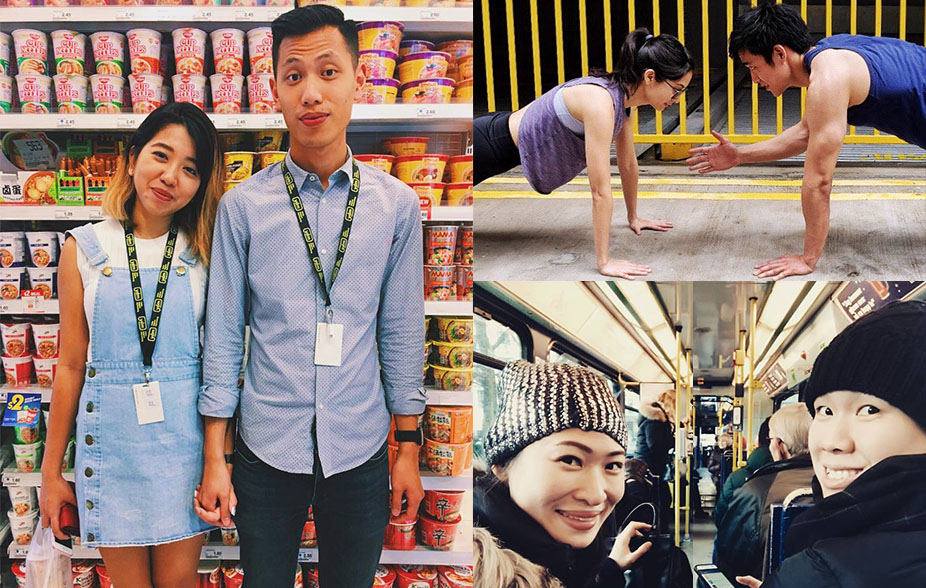Love is a game and in Singapore, you automatically play on ‘hard’ mode once you become an adult.
There’s barely enough time left for anything else when you have to juggle work and spending time with loved ones. And when it comes to finding love, it can be difficult to meet new prospects. Your selection is scaled down to the people you work with and even then, there is also the worry of things getting complicated when you mix personal life with work.
Any thoughts of networking or to actively seek out someone to date will be thrown out the door when your life is already exhausting as it is.
A lot of us also tend to spend most of our youth believing that love will come when it comes, and none of us want to be caught looking ‘desperate’. All these reasons can make it seem like life, on the love front, is bleak.
Finding Love In Today’s Digital World
Singaporeans are increasingly turning to meeting people ‘online’. I mean, even when we were teenagers, there were already the ‘OG stories’ of people who met and fell in love through online multiplayer games like Maplestory. In a way, I guess we can say that tools like dating apps are a natural progression for our attempt at love.
Just within my social circle alone, I know many people who have found their partner through apps like Tinder and Coffee Meets Bagel. Some of them are even happily married with kids now.
Most of these friends were initially highly-sceptical of getting anything ‘real’ out of a dating app. One had even consulted me about his fear of falling for a girl he met on Tinder because he just couldn’t “trust anyone who would go on Tinder for love.” I reminded him that he was there for the same reason. Today, they are in a happy relationship.
With that said, there are also many people who still doubt the value of dating apps. It is difficult to trust a dating app to find someone (with the intention to date) authentically, furthermore, when some of these apps are also exploited by people for casual flings and sex. To begin with, the conservative Asian in us already screams ‘danger’ the moment we start swiping.
Maybe we are too conservative or prideful to buy into such an unconventional approach in love. Or maybe we are just too picky. Whatever it is, Singaporeans clearly have a problem with finding love and studies have shown that we are settling down later.
The government never fails to remind us that we need to buck up because of our low birth rates and aging population. In their bid to play matchmaker, the government even has an initiative that gives singles $100 in credit to spend on subsidised dating events and services. Though, whether Singaporeans are actually using this is another question.
Stigma Of Finding Love Through External Means
Objectively speaking, dating events and matchmaking services are great ways to find love with. If you were to look at it as a game, these are ideal tools that will increase your chances in finding love.
While dating events are still fairly acceptable, most Singaporeans still find it a tad embarrassing, or awkward, to ‘resort to’ matchmaking services. After all, the fees for matchmaking services is still a gamble that one must be willing to take, because you may end up not finding your ideal partner after paying so much.
With that said, there has been an increase in the number of matchmaking agencies in Singapore.
Spending Thousands Of Dollars To Find Love
To understand more about the stigma against matchmaking services that I believe exists in Singapore, I spoke to one 34-year-old Clement, who had used different matchmaking services in Singapore. He is also currently paying about $6000 for matchmaking services with local company, Destini IS, which specialises in matchmaking services between Singaporeans and Japanese.
Despite having spent so much money in his attempt in finding a life partner, Clement admitted that he hesitated signing up for matchmaking services at first.
“While matchmaking is common in China, Europe, and the US, many Singaporeans are still shy about it.”
He was initially doubtful of it because of how unfamiliar matchmaking was in Singapore. Besides, he had always believed that meeting people through his own social circles would be easier and more comfortable, since there would already be a sense of acquaintance through common friends.
But the harsh reality is that with every year that passes, Clement’s social circle gets smaller, and so does the number of available singles in his community. It didn’t help that he is working in a male-dominated industry.
“There’s also been pressure coming from peers and family, especially when I get their wedding invites and during social gatherings.”
“It’s what actually made me resolve to start focusing on settling down as well.”
After his experiences in four relationships, dating apps and with matchmaking, Clement no longer sees it ‘shameful’ or embarrassing to use matchmaking services to find a partner.
“When you want to be fit, you would sign up for a gym membership or a yoga plan, and you would make the best of it. You would even invest in relevant gears like sportswear. Likewise, the same logic applies on a matchmaking service. Since I have decided to step out to try it, I’ll make the best of it to succeed in what I signed up for.”
Moreover, there are several matchmaking agencies in Singapore, some of which are officially recognised under the Social Development Network (a government page). It is also increasingly normal to see Singaporean men finding love through other means. There are ‘non-official’ services that operate through all kinds of platforms from webpage services to even apps like WeChat, and I’m sure most of us have heard of the ‘Siamdiu for Life, Siambu for Wife’ motto as well.
No Place For Shame If You Want To Find Love
There was a time where matchmaking is the last thing anyone in our generation wants. One would rather die alone with their 99 cats (or dogs) than be forced into tying the knot with someone we have no interest in.
However, getting a little help to broaden our horizons in an attempt to find a partner is no longer unusual. It’s funny that in an age where we are more connected than ever with the help of technology and social media tools, building relationships have become even more difficult than before.
Love no longer comes that easily and while I’m glad that there are all these dating apps and services to help us advance in the game of love (and life), I certainly hope that there won’t come a day where we have to rely on these tools to help us maintain all our relationships.
Also read: I Question My Marriage Now That Our Blood Types Are Not Compatible.
(Header Image: Odyssey)
My partner is a B+ and I’m an A, and according to the blood type personality theory, we are a match made in hell.
Apparently, blood type personalities have long been used by the Japanese and Koreans, and this fad has also found its way to Singapore, with some dating agencies here offering blood type dating services.
It made me reevaluate my relationship, because there must be a reason why so many people are buying into this theory of blood type romantic compatibility.
One site explains that my husband and I are the worst match because as a blood type A, I, apparently, need to “be in control in order to have that sense of stability,” and the need for structure and control can “cause tension with Type B’s lively social nature.”
I guess in certain ways, I do like to be in control. It gives me the assurance that the world is in order. However, I am no dictator, and I struggle to think of what kind of a ‘structure and control’ I might have imposed on my partner that is causing ‘tension’ with his ‘lively social nature’—and what does this even mean?
Another site tells me that as a Type A, I envy my Type B partner’s “ability to enjoy things at their own pace.” However, my (Type B) partner “is uncomfortable with [my] doting.The kindness feels intrusive.”
I should be worried about this apparent lack of compatibility between my husband and I, especially since we have a long road ahead of us as newlyweds. Instead, I am trying to figure out what it means for ‘my doting and kindness’ to be intrusive.
I mean, I would have known, right? I would be truly alarmed and worried for the sanity of my partner if he has been quietly suffering from distress from kindness for more than four years.
Despite not being able to make head or tail of the compatibility readings, it’s fascinating that blood type personalities have long been used by the Koreans and Japanese as a way to know each other and to find love. In a way, it is like their equivalent of our horoscopes.
Also known as ketsueki-gata, the blood type personality theory specifies defining characteristics that is unique to each of the ABO blood types, and you can easily find a plethora of sites detailing the personalities of each blood type.
For example, Japanese site Tofugo describes Type As like me as being ‘well-organised’: “They like to keep things neat but can be stubborn and get stressed out easily. They also value harmony with others.”
Screen Capture taken from Tofugo
On the other hand, my partner, a Type B, is supposedly known for his creativity, and Type Bs have “a strong sense of curiosity, but at the same time, loses interest easily.”
Screen Capture taken from Tofugo
Because our blood type is inherited, defining our characteristics by our blood is akin to saying that these are traits that we are born with. If we were to follow that same train of thought, it probably also means that my husband and I are predetermined to be doomed from the start.
It would have been unnerving if there is some sort of scientific proof, but let’s be honest: Defining our personalities (or romantic compatibility) by blood is like buying a 4D iBet ticket—you whack all the combinations in the hope that at least one would be the winning number.
Looking through the profile descriptions, my husband does not sound like a desirable person at at, what with ‘selfish’, ‘irresponsible’, ‘wild’, and ‘uncooperative’ as attributes. I’m no angel either, as a stubborn and wary perfectionist.
Clearly, we would have never been attracted to each other, much less survive the dating phase and gotten married if those traits were true to us, and if we had trusted the blood type compatibility reading.
The accuracy of it, or rather the lack of it, is unsurprising, considering that it’s been 90 years since the blood type personality theory gained traction and there still hasn’t been any credible sources backing it. Even studies that support the theory were said to be flawed. It’s worth noting that even the origins of it is quite sketchy, since it loosely based on a study Takeji Furukawa did with less than 20 people.
Funnily, despite every site preempting me about its lack of scientific credibility, it goes on to share that blood type personalities is wildly popular in Japan and Korea.
In fact, it has become such a culture norm in Japan that you can find blood type horoscope readings on their newspapers and local TV. Companies are known to hire based on blood types, and dating agencies cater to blood types. They even have blood type merchandise like sodas, chewing gum, and condoms.
Image Credit: Ex-pat No More
In Korea, there is even a romcom based off the romantic compatibility of different blood types. The 2005 comedy, My Boyfriend is Type B, “pursued the idea that a Type A woman and a Type B man are incompatible as a couple due to their blood-defined personalities.”
After hours of research into this, the only substantial thing I got out is expert medical knowledge on the antigens and antibodies in different blood types, as well as something called the Rhesus factor.
So What Am I?
In all seriousness, I believe our biological build does hold key to information about our body and us.
For example, studies have shown that <a href=" A produces the most amount of cortisol, a kind of stress hormones, which increases the chance of depression and fatigue. By that extension, we can loosely hypothesise that our blood types give us certain characteristics.
Though I doubt that the blood type personality theory is are anything more than another profiling tool for us to quickly and easily categorise people into groups. It's fun, and it should probably remain as just that. Otherwise, I’d need to really consider my marriage, and can you imagine how ridiculous that talk would be?
If you think about it, it would be mind-blowing if profiling tools like blood type personalities were to accurately and consistently illustrate everyone’s personality.
Moreover, there are so many other profile assessments out there. If I were to just put together my readings from some of the more popular profiling types and look at it as an entirety, I, as a Type A Gemini Goat Adventurer, will be pretty much the epitome of an identity crisis. So will be my Type B Gemini Rabbit Commander and our marriage.
There is a high chance that there is someone within your social circles with some sort of kinky sex secret hidden behind the face of innocence.
Surprise, Singaporeans are hooking up.
If you are a Singaporean millennial, you probably would have been living under a rock if you are unaware of how common it is for our generation to sleep around by now.
We all know that the hooking up culture exists in Singapore.
We know of friends, or friends of friends who have had One-Night Stands (ONS), Friends With Benefits (FWBs), and even orgies. Nonetheless, seeing the way we react with the initial disbelief that quickly transforms into excitement, one would think that we had just won the lottery whenever someone spills tea on someone hooking up with someone.
However, despite this awareness, casual sex and promiscuity remain an open secret only discussed in closed circles and in hushed whispers.
It’s an irony, because while our society has grown to be a lot more open to traditionally promiscuous behaviours, there is still a lot of shame attached to these behaviours.
As a Redditor best puts it, our society is one where we can do it “not openly la, [but] secret-secret ok.”
We’re The Amalgamation Of Conservative Singapore & Western Liberals
When it comes to promiscuity, we are a perplexing generation to understand.
Perhaps it’s because of the way we were brought up. Our parents and grandparents are people who would wear the chastity belt with pride, but chastity and abstinence are not values that we celebrate. In fact, it’s the contrary: we see it as prudish.
I believe a big part of this has to do with the way we are exposed to content from the West, the influences from Hollywood and American television since our primary school years. I find it hard to imagine us having the same perspectives as we have today should we have grown up with heavy influence from the East (like China) instead.
Overseas exchange trips that some of us have had the opportunity to go for also allowed us to experience the different cultures across the globe.
All of these collectively contributed to our general acceptance of liberal views in Singapore.
As such, we are the generation that grew up trying to make sense of the conservative boundaries surrounding sex that our elders drew for us. Out of curiosity and the desire to ‘rebel’ a little, we dip our toes into these boundaries. As a result, we become increasingly liberal with sex while we still grapple with innately conservative values embedded in us from a young age.
On a thread discussing promiscuity in Singapore, another Redditor commented: “We're definitely fine with sex, but we've been brought up in quite a conservative environment where open discussion about sex is frowned upon, so everyone seems like they're very pure.”
The Need To Keep Up ‘An Image’ To Prevent Being Shamed
Also ironically, despite our knowledge of a hookup culture in Singapore, we seem to still have a sex shaming culture as well.
A large part of our society remains highly conservative, and I dare say that most millennials would feel uncomfortable with being 100% truthful to their parents about their views on sex and promiscuity. The reason: We either fear incurring their wrath in suggesting something so blasphemous, or we know there’s no point in even trying.
In our society, there’s still a significant amount of shame that’s tied to traditionally promiscuous behaviours, which is pretty much engaging in any kind of sexual activities with anyone else besides our partner.
I spoke to two millennials who opened up about having had multiple sex partners. Despite their belief that it’s okay to have casual sex, both shared the same sentiments that this ‘lifestyle’ is not something that they will flaunt because they are not confident that society, as a whole, will be able to accept their behaviours.
It isn’t so much of a fear of not being accepted by people, but it is the subtle ‘shade’ and shame that comes with being openly promiscuous that they would rather avoid.
26-year-old Lynn*, said: “There are always moments where I judge myself. I think part of it is because we have always been taught that sex is all about love and should only be done in a committed relationship. Another thing is that people will definitely judge you as well, especially if they themselves strongly believe that sex is an act of love.”
27-year-old, Tony*, who revealed that he has had sex with around 36 women, added that it’s important to learn how to separate making love and having sex. “Sometimes I feel [bad] because it’s like a transaction, as if [sex] is the only thing we can offer. But on the other hand, it’s also a human need.”
Despite all the shame and stigma however, there have been noticeable changes in our society.
For instance, Swinging Communities are more prevalent these days, and Swingers are completely open about satiating their sexual desires through ‘unusual’ arrangements like swapping spouses and even sex parties (orgies)—yes, these happen in Singapore. These communities are a lot more accessible today, and you can easily surf forum threads that detail these experiences and join communities like Undertable—Singapore & ASIA Swingers Community.
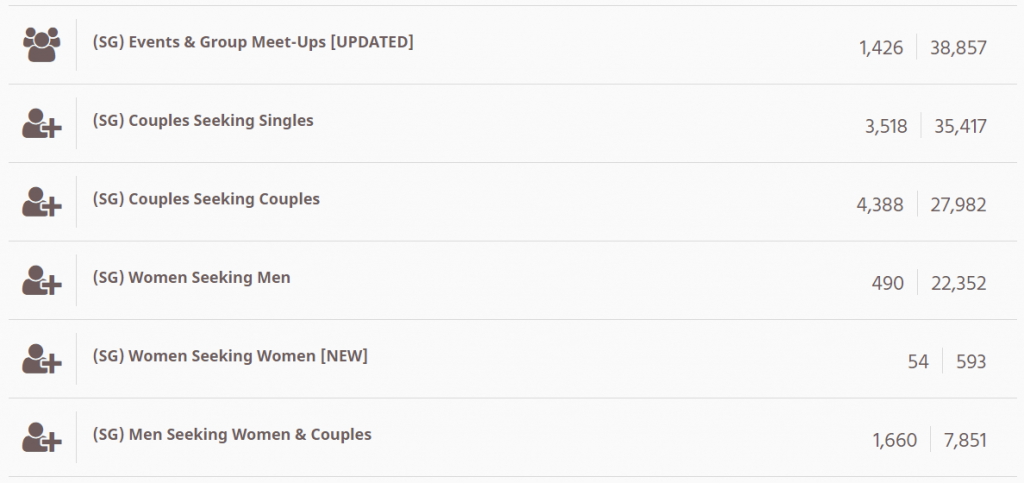
We’re becoming more receptive of the concept of promiscuity, and some would argue that this is eroding our traditional Asian values. But if we were to look at this objectively, it really isn’t necessarily bad.
It isn’t as if promiscuous behaviours are a new fad. And sure, there’s a growing acceptance in the pursuit of promiscuous lifestyles today. However, it’s also a fact that people are more willing to open up today, which is great because being able to talk about it helps us understand more about sex.
This is also a positive progression because on the other end of the spectrum, there are many who struggle with the guilt of doing something wrong whenever we pander to our sexual desires. I know this because I’ve struggled with it myself.
This fear, guilt, and shame is also what deters us from talking about our struggles, or about sex even, which is really important in helping us understand more about something that is at the end of the day, really just human nature.
It helps to take away a lot of guilt and shame that we really don’t need. And let’s be honest: having casual sex is inherently hedonistic, and we know it.
Importantly, We Need To Know The Difference Between Acceptance Vs. Glorifying
Don’t get me wrong. I’m not advocating for Singapore to be more (or less) promiscuous. Instead, what I’m proposing is for us to think about how much we are talking about sex and how we are talking about it.
Ultimately, I think we need to establish the difference between accepting and glorifying sex and promiscuity. It’s one thing to be more open-minded and to encourage a more liberal society, and another to promote or encourage mindless promiscuity. Let me assure you that I am not gunning for the latter. Neither am I promoting the idea of polygamy or cheating, or for every conversation to be about sex.
What I’m saying is that it’ll do us good to have more acceptance.
Something I’ve learnt from reading up about the Undertable Community is the need to have mutual respect and non-judgment.
With all that said, there are still behaviours that I don’t agree with. But that doesn’t mean that I expect other people to believe in my belief. I’d agree to disagree, because just like how I wouldn’t want others to judge my (sex) life, I believe there’s no win in judging others just for their sex drive.
Despite being inherently conservative, I’d say ‘it’s your life.’ Do whatever you want as long as you keep yourself safe, and you don’t affect anyone who isn't willing.
So What’s Good For Our Society?
These days, there’s no more clear definitions of ‘right’ and ‘wrong’ as lines are blurred. More often than not, we know that behind cases of infidelity is also very likely a complicated history between two adults.
As the generation that grew up with a mix of Eastern and Western values, we are one that are increasingly receptive of liberal perspectives while we continue to police ourselves with morals of fidelity and monogamy.
Some may think that we are becoming desensitised or that we are normalising promiscuous behaviour and to a certain extent, we are. However, I don't think that this is necessarily a bad thing. It’s just growth. And being part of a society in a first-world nation, I think growth is good.
Going forward, it's probably also one of the things that is going to change a good deal in several generations' time.
* Names have been changed to protect the identity of the individuals.
Also read: Is There A Need For Better Sex Education That’s More Than STDs And Abstinence?.
(Header Image Credit: Marvin Meyer on Unsplash)
I never knew it would hit me because I have never been the emotional type, but it did, and it has been a heck of a roller coaster ride.
Slightly more than a year ago, I gave birth to Kayla, and for the first three months after, I struggled with this constant ball of fear in my chest. I had no appetite for meals, I cried everyday, I lost weight, and my milk supply dipped so fast that I couldn’t breastfeed even if I wanted to.
As a first-time mother, I was overwhelmed by this new lifestyle that no amount of preparation could truly prepare me for.
Initially, we didn’t plan for Kayla to happen, as my husband and I were only married for six months at that point. And to be very honest, I felt fear the moment I knew I was pregnant. I knew motherhood was not going to be a walk in the park because of the stories I have heard from fellow moms. I was terrified of what's ahead.
Unlike in school where there are lessons and ten year series to walk you through each subject, there is no ‘manual’ for motherhood. Everyone's experience is different and the only way to know what motherhood really is, is when you become a mother yourself.
Nonetheless, I prepared myself for motherhood in the possible ways I could: by making sure we had all the physical stuff ready. Things like the baby’s room, the milk bottles, and the medications. It was an assurance that at least, whatever we need will be available at our disposal when Kayla is born.
Then, Kayla Came
The first 28 days was a whirl, but at least I had a confinement nanny around. I was still recovering from the natural birth process and my stitches still hurt. I wasn’t very mobile. As I was breastfeeding, I couldn't get more than four hours of sleep each time. It was really tiring.
Deep down, it started to dawn on me how scary it was that I am now responsible for this little human being. However, I also wanted to give her the best I can, and I tried my best to learn as much as I could from my confinement nanny before she left. And when she left after the first month, I started to lose control.
I lived in constant fear and anxiety.
I'm a self-professed worrier. I think a lot and cannot help but imagine the worst scenarios that can happen. This made me feel anxious all the time.
As a first-time mother, you find yourself forming an idea of motherhood based on what you read on the internet and from other mommies. For me, what I read and hear became a set of expectations for myself. I started to follow these set of 'rules' religiously, and even if the most little of things go out of place, it'll mess me up.
For example, I would expect Kayla to take this number of naps a day, or to finish drinking this amount of milk, and I would get really worried when those 'quotas' are not hit. The pressure of living up to these expectations I placed on myself and the stress of feeling inadequate consumed me over time.
I didn’t know how to handle a child. I felt so lost and lonely. Motherhood was something so new to me and I was just so afraid that I wasn’t doing things right or wasn’t giving my best to my child. I wasn't even in the right state of mind. I was just this person following a schedule: always on stand-by to supply Kayla her next milk feed, change her diaper, burp her, and bathe her.
As a chirpy and outgoing person by nature, I knew something wasn’t right as I was crying every day. I lost all appetite for meals. Waking up every morning became a dreaded affair because I will be filled with anxiety the moment I opened my eyes, and that awful feeling would intensify through the day.
It was so mentally draining.
The Shame That Came With Having Postnatal Depression
I struggled with the thoughts of how it was possible for me to have depression. I was ashamed. A part of me felt like I had no right to feel this way since I had been looking forward to being a mother for the past 10 months. How could I be depressed now?
Fortunately, I saw what I was becoming, and I knew that this was not the kind of lifestyle I wish to continue with. It was so painful and stifling to be on the edge of a breakdown every single day.
I wanted the old Meiting back and with that realisation, I decided to open up. I sought help from my mom, whom gave me the chance to have a few hours off per week. I spoke to my husband as well, and I implored him to bring me to a doctor if I were to continue to cry for another week, as I knew I would need professional help.
When I did open up, things started to look better.
Learning To Let Go
In reality, when it comes to handling babies, things rarely goes according to plan.
My mother and husband played a big part in my recovery and it is their support that helped me come out of postnatal depression after two months. The subsequent six to eight months still saw me having moments of anxiety attacks, but it was manageable as I had learnt to talk about my depressive thoughts. And my family and friends became my wake up call.
My husband always tells me to let go and to just follow our daughter's cues. It is reminders like this that remind me of the pressure I had unwittingly placed on myself, and how I need to take it easy.
It’s now my second year as a mother. Looking back at myself as a mother back then, I’m grateful for whatever I had gone through.
I'm grateful for my child, Kayla. We did not plan for her to happen. But she is now, to me, the greatest gift from God. Kayla has completely changed my perspective as a person, and I have grown and learnt so much from being a mother.
This Mother’s Day, I'm also super thankful for my mom.
Without her, I will not be able to go back to work with a peace of mind. Without her, I don’t know how I would have been able to deal with my postnatal depression. Her unwavering love and support for Kayla and me have left a mark on me, and has shown me once again, what unconditional love is. And now that I've experienced it myself, I know how fortunate I am to be blessed with the role of a mother.
To all first-time mothers and mothers-to-be
No mothers talk about it, but postnatal depression is very real. It is common and 80% of my mommy friends have experienced it, be it in a mild or very serious form. Because nobody really talks about it, you will feel like postnatal depression isn’t ‘normal’ or ‘right’. I know this because those were emotions that I grappled with.
It sucked the life and joy out of me. It affected my husband and made him feel distanced from his once loving wife. It is important to acknowledge that these feelings of fear, doubt, anxiety, and sadness are very real, for this will help you get better.
The start of motherhood will seem scary and lonely, but it will get better. There will be bad days but the storm will pass and you will be fine.
Cherish the good times and learn from the rough ones. You’ll make it through eventually. There's nothing more rewarding and fulfilling than being a Mother. You'll love it. Maybe not now, but you will. We are made for this.
This story is written by Millennials of Singapore, as told to us by Lian Meiting.
Also read: These 14 Heartwarming Stories Show That A Mother's Love Is Like No Other.
(All images used in header image taken from Lian Meiting)
19th April 2019—The day before
5.30am
The first wave of ‘fake’ contractions kicked in at irregular intervals of 8 mins, 10 mins, 4 mins, and 6 mins. I recorded the duration and intervals of each wave on the contraction tracker app.
The day went on as per normal. My mother-in-law even packed chicken rice for Fong (my husband) and I and we had dinner at home.
12pm
I had a bloody show but the contractions slowly went away.
10pm
The contractions came again. This time, the contractions were starting to come on an average of 6 to 7 mins and the intensity of the pain was getting stronger. I tried lying down but it made me feel even worse. I couldn’t sleep.
I wondered: Is it another round of ‘fake’ contractions again? I wouldn’t want to make a wasted trip to the hospital. But if it were real, I would want to wait until it has passed midnight before we check in so that we wouldn’t be charged an additional night. So, the waiting game began.
I continued monitoring the contractions. The waves started to come in stronger and at shorter intervals. Fong had gone to bed and I started pacing around our bedroom.
I tried to find an optimal position that can help relieve the pain. I moved from sitting in the armchair to a standing position, to sitting down on the floor against the wardrobe, to sitting up on my bed, to lying down on my bed. I tried the deep breathing technique, hoping it will help. But nothing worked. I wondered if I should wake Fong up, but I wasn’t sure if this was the real deal, so I continued to time the contractions and endure the pain.
20th April 2019—The Day
2.30am
Fong was shifting around in his sleep when he accidentally kicked me. He woke up and found me sitting at the edge of the bed. I told him I was in pain and my contractions had been coming in fairly regular intervals. He suggested that we make our way to the hospital slowly, given that I already had a bloody show this afternoon.
He remained calm and collected as he started to do some last minute packing. I went to take a long shower, pausing to grab hold of the shower head pole whenever the contractions kicked in. Then, it finally dawned on me that buibui (my baby) is indeed coming. We made our way to Mount Elizabeth Novena Hospital once I was done.
4am
We checked in to the delivery suite. I was given enema to clear the bowels first before the nurses put me on IV drip to ensure I was hydrated throughout. The urine catheter was also put in place. The nurse then placed two sensors across my tummy using elastic straps, one to monitor the contractions, one to monitor buibui’s heartbeat. It was then she checked that I was already 4cm dilated.
5am
The anesthetist came and gave me the epidural. I was asked to arch my back as much as I could. She had to poke me twice or thrice because I moved.
Soon after, I could feel a cooling sensation down my back. The effects of the epidural kicked in around 15mins later when I felt both my legs go numb. I was also given oxytocin via drip in order to help labour progress. Once in a while, the nurse would come in and adjust the dosage of the epidural. This was to ensure that I could still feel some contractions so that I could push better later on.
8am
I felt tight contractions on my lower pelvis. The nurse checked and noticed that my water bag has burst and I was 8cm dilated. Buibui’s head was gradually moving down. I could start to feel the painful contractions again although I was on epidural.
This was the part where buibui’s heartbeat started to drop. The nurse quickly gave me the oxygen mask and started shaking my tummy as she tried to locate buibui’s heartbeat again. She shook my tummy multiple times and asked me to breathe in deeply. I could hear the monitor projecting a heartbeat that was slowing down.
After a few minutes, we finally managed to stabilise buibui’s heartbeat. You can only imagine how worried I was. The nurse explained the series of events to me and shut off the oxytocin drip. I didn’t dare to move an inch anymore.
9am
Stronger and stronger waves of contractions kicked in. It felt as if I didn’t have any epidural at all. The nurse increase the dosage from 12ml to 15ml. I asked her if the drugs will affect buibui’s heartbeat again.
If it will, then I would rather bear with the pain than allow it to affect my baby.
The nurse went out to call the anesthetist. When it was just Fong and I left in the room, I started crying uncontrollably. I was in so much pain and I was worried about buibui at the same time. I continued to ride through the unbearable contractions, telling myself that:
“Pain is temporary. Buibui is forever.”
But the pain overpowered my mind and body, so much that I told Fong that I wanted to just do C-section now. Fong tried to console and encourage me. I was pretty sure he felt so helpless watching me cry. The nurse came in and started consoling and encouraging me too. She gave me laughing gas and told me that the anesthetist approved another stronger drug for the pain. But it will, again, take 15mins for the drug to take effect. I continued my mantra.
10am
I was fully dilated and the nurse practised pushing with me. The lower end of the bed was removed and two leg rests propped up at the sides. As the contractions came in, the nurse guided my breathing and pushing. She was so encouraging, telling me that she could see the baby’s head and that he has a lot of hair. This motivated me as well. Another nurse placed a mirror at the end of the bed so that I could see buibui’s head as I pushed.
11am
My gynae reached and with three pushes, Baby Eyden was born.
Both Fong and I teared together. It was such an amazing moment and I kept reliving it over and over again in my head.
We requested for delayed cord clamping, and Fong cut the umbilical cord. They put Eyden on my chest and I marvelled at how handsome he is.
The gynae continued to stitch me up as the nurses proceed to weigh and check on Eyden. He was born 3.4kg, 52cm long, and 35.5cm head circumference. The nurse complimented on my wonderful performance again, birthing this big-size baby with my petite body.
After a while, we tried direct latching Eyden onto me. But I was shivering so badly from the side effects of the epidural, so we passed Eyden to Fong for skin to skin contact instead. At that moment, I felt so thankful to have Fong and the nurses by my side throughout.
Now I understand. This, is why mothers always say: “Everything is worth it.”
This post was originally written by Serene Heng. We have reproduced this with her permission.
Also read: I Became A Dad At 22 - Our Parents Opposed But We Kept The Baby.
(All images used in header image taken from Serene Heng)
Violence was prevalent in my family ever since I was 10 years old. My parents struggled with finances and my dad turned to alcoholism. The mounting stress and tension caused my parents to fight a lot and they started taking out their anger on us. They would often punish me over the smallest things, emotionally and physically abusing me (hitting me).
And when my parents fight or have physical outbursts, I’d tell my sisters to hide in the room while I put myself out there to bear the brunt of my parents’ anger. Somehow, it felt like the right thing to do for my siblings as the eldest. I also felt like it was my duty to be the middleman in helping my parents resolve their disputes—a responsibility I carried on my shoulders as the first child. I even took on three part-time jobs while in poly so that I could help with the finances.
There was a lot of emotional void and I was constantly trying to do things to please them or make them happy, so that I would get more love from them. I grew to have a people-pleasing attitude because of that.
Those traumatic experiences took its toll on me and I started to have depression and anxiety.
Then, I had my first mental breakdown at 20.
What Is There To Live For?
For eight months, I locked myself in my room and tried multiple ways to kill myself. I was in so much pain internally that I felt like I really could not take it anymore. I felt like there was no other way out of the plight I was in. Everyday was just a constant fight to stay sane amidst the fights, emotional abuse, and physical beatings.
The details are all fuzzy now, but I remember trying to cut myself, hang myself, and overdosing. Fortunately, I didn’t know enough to properly take my life back then, and when the suicide attempts didn’t work, I continued cutting myself instead—to feel the pain. I could not process all those pent-up frustration, anger, and sadness I had, and in order to let out the pain that I felt inside, I felt like I had to feel pain on the outside.
At that point, I had already been going to the doctor’s and had been taking medications for depression and anxiety. However, my parents weren’t convinced that I was struggling with mental issues.
My mom kept my medication and refused to give it to me. To my parents, it was their way of preventing me from overdosing, but even when I needed it, they wouldn’t give it to me—even when I had a full-fledged panic attack, my dad simply stood there and said:
“Don’t be a drama queen.”
As far as my parents were concerned, I needed to snap out of it.
Fast forward to 2014 when I was 25, I had my first major dissociative episode.
I Lost My Memory And Dissociated
I had been feeling really stressed out from juggling a few jobs, and had to complete some work at home over this one weekend, when I already had another part-time job that weekend. I made plans to finish that piece of work on Sunday night instead, only to return home on that fateful night to see my dad and a relative drunk and passed out on the couch. The house stank so badly from alcohol and the pools of vomit all across the living room, and my mom was nowhere to be seen. That was the last straw and was what triggered my first dissociative episode.
I lost my memory and began acting like a child for three months.
I didn’t even have a memory of what happened or how I was behaving, and it was through the people around me that I learnt of it.
It is very scary to know that for three months, you were being taken over by this other personality. I didn't know what was going on and it was very unsettling and stressful to know that I dissociated.
Although, it also gave me a sense of comfort in knowing that there was more to what I’ve been feeling than depression and anxiety. After multiple visits to hospitals and various psychiatrists, I started getting treatments that effectively helped me revert to normal adult behaviour. However, the memory that I lost was still gone.
It was a year later when I got diagnosed with DID (Dissociative Identity Disorder), or ‘split personality’ to most people.
I was doing my Master’s in the United States back then, and it was at a psychiatric ward there that I was also diagnosed with major depressive disorder, generalised anxiety disorder, borderline personality disorder, and post-traumatic stress disorder—all of these with triggers that are rooted to traumas that go way back into my childhood.
The Scary Part About Having ‘Split Personality’
When all you know about DID is from how awful and terrible it is portrayed in movies and media (like in Split), it makes you fear having DID yourself. I didn’t like any of my personalities when I was first diagnosed, and the denial lasted a while before I accepted my disorders. But DID is far from what is shown in the media.
Having DID feels like having 28 persons living inside me—which is the number of personalities I currently have.
Image: Gaya
I don’t have any recollection of what happens when one personality takes over. Sometimes, I dissociate within a snap of a finger when the trigger is very strong, like when someone approaches me from behind, at the stench of alcohol, or even men, because of the sexual abuse I’ve been through (I was naive and a people-pleaser). These triggers come from my history—traumatic experiences I’ve had since young.
My past has also made me very sensitive to stress, and I don’t have the capability to handle any change in behaviour from people around me. It’s made it almost impossible for me to get a full-time job. However, I’m also fortunate to be able to make a living from freelance marketing jobs.
But the scariest part of all is not so much of the disorders itself or having to face the people around me. The scariest part is not knowing when I will be suicidal and when I will act on those suicidal thoughts.
Road To Recovery
With the help of various treatments in the US and in IMH, medications, and focus groups, I have come to understand the significance of my personalities.
There are personalities that take over when there are triggers that make me angry. For example, Angie comes out when I’m really, really angry and when she’s in control, it makes me become uncontrollable, physically violent, and extremely strong. There was an event that happened in the US where three men with big build couldn’t hold me down when Angie took over, and I had to be physically restrained when they took me to the hospital.
Then, there’s Viyolante, who thinks of violence, gruesome and graphic acts, and is very specific about who and how she’s going to be violent towards or hurt, but she will never do anything violent.
On the other hand, there are a lot milder ones like Baby Gayu and Wava, who are childlike personalities, and a motherly figure, Moonlight, who takes care of everyone. There’s also a rescuer personality, Ressie, and a ‘non-living’ personality called Memory (or Mem), which is sort of like a treasure chest that holds all my lost memories.
Image: Gaya
I’ve learnt a lot more about my conditions, how to process my emotions, and to logically process the traumatic memories I have instead of dissociating upon triggers.
In the process of recovery, I’ve also had to make the extremely hard decision of cutting my family and husband out of my life, which I did five months ago. I realised that there was no way I could properly recover if I still had to face those triggers when I return home to my family every day.
Image: Gaya
There are many times I feel guilty for leaving home and leaving them, as I feel like I’ve betrayed and ‘abandoned’ them. I’ve always felt responsible to ‘fix what’s broken’ in my family, and I still feel this way. However, I know that if I don’t focus on my recovery right now, there is no way I will be stable enough to face them, much less solve any problems.
Staying Alive For The Prospect Of Better Days
I have a dream to be named one of the most influential women in the world by 35, or doing a PHD in South Korea and then settling there. These are ambitious dreams, but are goals I set for myself to remind me that I have to keep going as there are still things I want to achieve in my life.
But of course, living with mental disorders can be so overpowering that despite having all these goals and aspirations, I still feel empty and battle with suicidal thoughts and aimlessness. It’s a constant and daily fight and I still wake up feeling depressed and suicidal on most days.
However, the process of working my way through it, of recovery itself and believing that someday, I will be able to live a normal life, keeps me going—because I don't know what normal is, I never had a normal life.
These feelings come and go, and it’s always a reminder for me to take it one step at a time.
This story is written by Millennials of Singapore as told to us by Gaya.
Also read: “I Kept Hearing Voices Of People Criticising Me, And I Could No Longer Tell What Was Real”.
(Header Image Credit: Shirley J. Davis)
When I was 6, my dad cheated on my mom.
I will never forget my sister’s arms covering mine like a seatbelt as we watched Mom chase Dad out of the house. I didn’t understand what was going on back then and was way too young to grasp the concept of cheating. It just seemed like Mom and Dad had a fight about something.
Inevitably, that led to a divide in the family, and we pretty much lived without my dad for a few years.
There’s No Place Like Home
Dad came home when I was about 10 to 12. Although, his presence was always fleeting. I’d see him around at home on some days and then for long periods after, he would go missing again.
It didn’t feel right, but nobody said anything. Nothing about the affair (which I came to understand much later on), nothing about this unusual arrangement, or what was happening between Mom and Dad. There was no “our Dad is an idiot” uttered among my siblings, no “your Mom and Dad are separating” from the elders, nothing.
As much as I thought things were odd, I learnt not to question anything and to just accept the way things were. Over time, what is supposedly a broken family developed into a norm for me.
However, I also believe that a bad husband doesn’t necessarily make for a bad father.
Every Parent Loves Their Kid
In fact, he played a crucial role in my childhood and through all the times I’ve spent with him, he had ingrained in me many inherent attributes, albeit a mixture of good and bad ones.
Ever since I could walk, my dad was training me to kick a ball, and kick a ball I sure did. Like his father, he was a semi-pro footballer in the past, and I am very grateful that he had put me into an academy school for football at a very young age, for football has become a huge part of my life, even after 20 years on.
On the days where nobody was sporting enough to bring me out, Dad would whisk me off for some entertainment, taking me out for meals and spoiling me at arcades.
On other days, however, he would bring me out bar-hopping. Not the hipster bars that our millennial friends would chill and have deep conversations at either, but the shady ones with the flirty bargirls, heavy cigarette smoke, and sometimes god-awful karaoke.
Looking back, these bars were extremely inappropriate places for a father to bring his twelve-year-old son. But this was (in his own words) his way of ‘opening my eyes’ and ‘broadening my horizons’.
“If I can’t teach you good, I can at least teach you the bad.”
I was just twelve when I saw the world of bar girls taking orders from men who would eye them up. And when my dad flirting with different women became normalised behaviour, masked under the guise of ’friendly conversations’. Conversations that my dad would say, “talking cock” and “all in good fun.”
As a quiet kid by nature, I mostly observed those chummy interactions and minded my own business.
My dad introduced me to pool, and I’d always look forward to being back at the pool table—that became part of the only reason why I looked forward to going out with him later on.
Over time, I started to notice that there was this one lady who would approach my father on many days. As a kid, I didn’t really think too much into what that meant, except that she was my father’s companion for the night.
Then one day, my father asked me to call this lady Mom.
I cannot even begin to explain the mix of confusion and perturbation that put me in.
I know my mom, and she’s the woman who has been taking care of me since young, and whom loves me with all that she has. This lady, on the other hand, was someone who gets chummy with Dad on certain nights at the bar. How am I to call her Mom?
At the same time, I had no idea what it meant for my dad to do that.
It messed my mind up about what love is, how relationships work and what is morally right. It messed me up knowing that I had been practically watching my dad spending time with his mistress(es) thinking that it was no big deal. And to realise this whole other world that my dad had been living while my mom was back at home, slogging to look after her three children by herself. Are relationships like that? I didn’t remember it being like that in shows or anywhere else.
Looking back, I definitely I would have stood up to him if only I knew.
If only I knew.
You Can’t Choose Your Family
Since young, the phrase “no matter what, he is still your father” has been reiterated to me by my aunts, my uncles, and even my mom. And for the entirety of my childhood, I truly believed that my father was my father no matter what.
Despite all the shady activities and mistresses, I still saw him as a father. I appreciated having him around and genuinely believe that in his mind, this (bringing me into his world of bars and girls) was his way of getting closer to me.
The fact that we share quite a few similarities and him having imparted various skills that turned into personal passions of mine helped maintain that somewhat positive image I had of him.
As the only person that he let in on a side of him that no one else knew, I also saw myself as the potential bridge to making my family whole again (once again, because family should stay together right?).
I had even rationalised that perhaps, all the time he had spent with me was a cry for help. As the only family member who was close to him, I felt like I was able to break him out of his unhealthy habits at some point.
Unfortunately, it was all wishful thinking because what was a father-son relationship to me was to my dad, something that he could exploit. At least, that was what it seems when I picked up a call in late 2016.
Children Are A Poor Man’s Riches
“Where the f**k is your father?! Owe money don’t need to pay ah? If don’t pay back by 5pm, I’ll burn your house down!”
After the initial state of confusion, it hit me that my dad had given his son’s (my) personal details to a loan shark.
The most wrong I’ve done to him was probably stealing from his piggy bank (maybe it’s karma), but there I was as the guarantor for him to loan sharks. It was one of the worst feelings in the world, and I felt absolutely betrayed.
Soon enough, my family learnt that Dad had owed 21 loan sharks a total sum of $35,000.
Besides the loan sharks, he had also sold my insurance for money, and used my name for a telco plan, which racked up a debt of $900. When my family confronted him about it, his response was, “let them sue, they wouldn’t dare.”
With the help of my relatives, my family eventually paid off all the debts in hopes of closing this chapter, as my dad promised to do. And for a moment, I really thought that that was it for drama.
Then, just last month, I received a series of messages looking for my father. Again. From loan sharks.
It was barely three years ago that we paid off all his debts, but my father had let us relive all of those feelings of confusion, fear, worry, and heartbreak all over again. All for money which we have no idea what he needed for.
“Blood Is Thicker Than Water”
I used to love my father for the moments that he had brought to my life. For the times that he taught me football (even though the methods aren’t the best), how he introduced me to playing pool, which I’m good at now, and for just being around in his own, unorthodox way.
These skills and moments, however, do not even come close to justifying what he has done to my mom, my family, and me.
Not only has he broken our heart so many times, he had, through exposing me to the world of bargirls and flirting in my formative years, given me a warped belief system. I’ve had to relearn what it is like to love and to learn how to differentiate the ‘rights’ and ‘wrongs’ in relationships—not just romantic ones. I've hurt many people because of that and I beat myself over it.
For a long time, I struggled with coming to terms with having him as my father, and I cannot deny the many times I blamed him and wondered what I did to deserve a father like him.
I believe there are many things that contributed to how he turned out. Maybe it was his upbringing, or something that messed him up when he was young, but something should have contributed to him being this way. But for the most part, this man did not treat me like his son and I cannot possibly blindly accept that blood is thicker than water like I have been brought up to believe.
Learning to accept that has given me peace that I did not have for a long time. Lacking a ‘proper’ fatherly figure definitely affected my life but I’m thankful to have moved on mentally.
The whole concept of a traditionally-complete family is lost to me, but I’m happy to say that my family is as complete as it needs to be now. I have my mom and my siblings who love every bit of me, and whom I love as dearly. That is all I need from a family.
Also read: We Live Under One Roof, But We Don’t Feel Like Family At All.
(Header Image Credit: Ian Tormo on Unsplash)
69-year-old Mr Zhen once attempted to take his own life. “Since there’s nothing [left] to do, I may as well die.”
In my attempt to learn about the lives of elderly in Singapore, I had spoken to five other seniors in their 60s to 80s. The one thing that struck me was how there is an unspoken, but very perceptible sense of aimlessness.
In an article by The Epoch Times last year, a 2008 research article was brought up, where all 19 interviewees “reported feeling lonely or depressed, and many said they live by the day and endeavour not to think of the future.”
Where one has pretty much fulfilled the most of our life goals, like getting a job, saving up, starting our own family, or seeing our grandchildren, it can be hard to fathom that there is nothing else to look forward to.
And Mr Zhen is just one elderly person who has struggled with his thoughts of mortality as he age. There has been studies on how there are more old people who struggle with loneliness and how socially isolated seniors have a higher risk of dying prematurely.
When I visited <a href=" Home for the Aged Sick last Saturday, I got to speak to 72-year-old Winnie Koh, who has been running the nursing home as Chief Executive Officer (CEO) for more than 15 years.
She shared that one of her residents has suicidal tendencies, and had once tied bedsheets and put it around his neck in a suicide attempt. Likewise, that resident did not see a point in living, “when [to him,] he’s already 90, nearing 100 years old, and does not have the ability to do many things himself.”
This resident has also went through certain rough patches as well, as a very close female friend of his had passed away.
“I can feel the loneliness in him. He doesn’t speak to [a lot of] people.”
I asked Winnie if residents fear death.
After a short pause, Winnie explains that the elderly do not fear death per se. For the most, those who fear death fear going to hell.
However, Winnie acknowledged that there are those who struggle to let go, in the sense where they could have unresolved wishes: people they want to meet, messages they want to tell their loved ones, or something they want to complete.
32-year-old Alvin, added that having worked in the eldercare sector for about six years, he has often hear elderly regretting not treating their family members better or not better providing for them, “they definitely fear for the people and the relationships they are leaving behind.”
This is where, at a nursing home, they play up their role of caring for the residents. Winnie explains, “it’s the comfort [they need], to affirm them that they are ok, and that [whatever they want accomplished will be taken care of.] I will arrange for family members to visit. Usually they do go off peacefully after that.”
Along with the physical or cognitive impairments, the elderly face a whole set of very personal and emotional hurdles as well.
Before working in the eldercare sector, Alvin, like many of us, never understood the stubbornness and ego that many elderly have. But now that he has got a glimpse into the lives of different groups of elderly through his six years, he explains that most elderly fear losing their independence, and when an elderly go from “a provider, a giver, a successful person on their own rights losing the respect, mobility and cognitive ability they have [when they age], the frustration they are going through can be very overwhelming.”
As sad as it sounds, these seniors turn to stubbornness and ego as a way of holding on to that last bit of control that they still have.
Although, there are also “difficult ones,” those who who choose to isolate themselves, and who refuse to interact with people. In such cases, Winnie explains that in the nursing home, they still try to show the elderly their presence and care in one way or another.
Drawing similarities between elderly and babies, Winnie said, “once you make them feel safe and comfortable, they are easily cared for.”
At Moral Home, the residents may suffer from different illnesses and each, their own sets of disabilities, but Winnie tells me that most of them are generally happy.
Having reached the point where they know that they are old and are ready to die, most of them would live every day to their fullest in the little ways they can, like eating, reading, or praying.
“Once, I have this resident who [had severe dementia and] is, on the whole, a very happy person. One day, she was just resting in the lounge after her coffee, then she just said to me in Cantonese ‘I am going to sleep, bye bye.’ She never woke up after that.”
“I think it’s better that way,” Winnie said, on passing on peacefully.
When I visited the home I also got to speak to this two sisters who had sold their house to live at the nursing home.
For 82-year-old Tan Nya Nya and her 83-year-old sister, their choice to live in a nursing home is for convenience, and to ensure that they get the physical support they need at their age. This came after Nya Nya fell down once and both her sister and her realise that they were unable to manage on their own if anything were to happen. Being able to socialise with the other residents of the home are perks that they enjoy too.
Nya Nya added, on seeing residents who don’t share the same happy-go-lucky attitude she has on life, “if you naughty, throw tantrum, [your family] also won’t [feel happy to visit you]. Correct? No point [being so gloomy]. Don’t think so much. Must be happy.”
Like Nya Nya, 82-year-old Uncle Lee also have an optimistic outlook on life, despite the fact that he lives alone in a one-room flat in Toa Payoh
His daily routine includes waking up in the wee hours of dawn for a walk around the small park right beside his home, going for his meals, and watching TV. Sometimes, he would hop on a bus that would take him to Jurong, Pasir Ris, and even Changi.
As he regaled me with his accounts of these ‘mini adventures’ he goes on when he is bored, he emphasised that at his age, there is nothing much to do except eat and watch TV, “what else can I do at this age?”
When I visited him with three volunteers on a Sunday night, he had cooked a pot of Bak Kut Teh for us. And as we sat in his living room savouring the soup, I felt a little like I was in my grandmothers’ old house again.
Although he lives alone, his house is filled with knickknacks. Chinese New Year decorations still adorn his walls and the side of his fridge. I couldn’t help but noticed that he also has four clocks on one wall.
“He really likes clocks. There’s more in his bedroom,” one of the volunteers laughed when I asked.
These volunteers first knew Uncle Lee through a programme initiated by Youth Corps Singapore, but have since grown closer to Uncle Lee and for the past two years, have been visiting him every month.
Once a driver who made a livelihood off driving for commercial and private businesses, Uncle Lee retired more than 20 years ago, when he sprained his hip. This work injury, however, has become a permanent problem at 82 years old.
“I cannot really walk long distances, unless I take breaks.”
Curious about my own mortality when I reach his age and avoiding being so rude as to ask Uncle Lee - whom I just met - about how he feels about death, I asked if there is anything he fears now that he is this old.
“No lah! Scared of what? Don’t need to be scared of anything [at this age].” He jested, “Last time, scared of my mother, but mother not around already, so there’s nothing to be scared of [anymore].”
Ever since his elder sister passed away, Uncle Lee’s only other family members are his nephew and nieces, whom still visits him occasionally.
Most days however, his humble lifestyle revolves around watching TV and eating, which he loves doing.
“Uncle is a food king!” One of the volunteers teased, “whenever we go out, he will tell us what’s good and where to find good food.”
Unable to comprehend living alone at his age, I asked Uncle Lee if he ever feels lonely.
“Won’t lonely lah! [If I’m] lonely, then I’ll just watch TV, or put on a DVD, or go out and eat lunch. Lonely for what?”
His positive reply showed very much his outlook of life and in a way, it was also a reminder that happiness is a choice. He could very well dwell on what some would assume as unfortunate - he is old, never married, and living alone and off financial support from the government - but he had chosen to lead a simple and happy life instead.
A study done in 2004 found that seniors living alone were twice as likely as their peers to develop depressive symptoms. In the last stage of their lives, it can be very easy for seniors to feel frustrated and aimless.
Which is why, it is important not just for seniors to be able to adopt a positive mindset, but also for the people around them to empower them to do so.
Besides, our elderly citizens may be old and frail, but they have so much to offer in other ways.
Yong Shin, one of ‘Uncle Lee kids’ said, “They always say ‘seniors are a wealth of knowledge’, and I think [Uncle Lee] really displays that. You can tell that he really likes to share with you, about history or just whatever knowledge he has. He really likes interactions.”
And of all the conversations I have had with the seniors, the one thing that all of them have said, albeit not ad verbatim, is “we’re old already, what else can we do?”
To them, it is just better to lead a happy life and enjoy the simple things when you are already at that stage of life.
Also read: People Leave, But You Don’t Have To Be The One Left Behind.
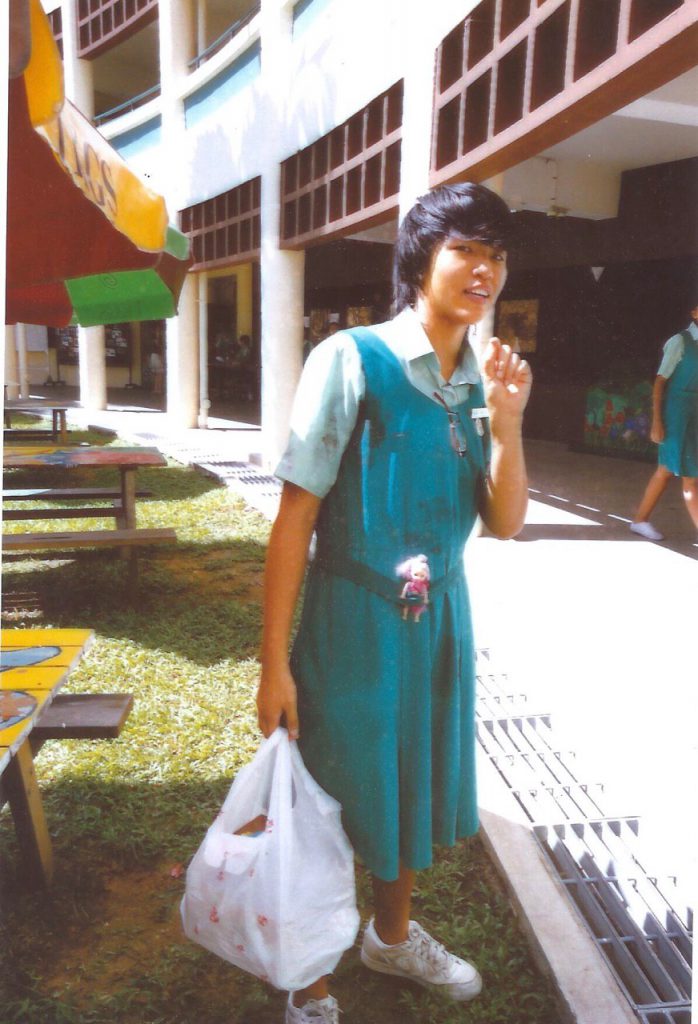
Image Credit: Cassius
How Can I Be Trans And Christian?
I was born into a devout Christian family. The kind where you will see shelves full of Christian paraphernalia the moment you step into our home. My dad is a pastor, and my four brothers and I pretty much grew up in the church. We saw the world through the lens of Christianity, and only through that — where ‘sex before marriage’ and seeking ‘permission’ from the church elders before dating are very normal. In my religion, there is only male and female, and this gender distinction is stated many times in the Bible. As Christian, the message that it is only right for one to be the gender that one is born as is clear as day. So all through my teenage years, I struggled with my gender identity, because even though I am born a female, I didn’t feel like it at all. I hated the way I looked and I hated the way I sounded. The picture I had of myself in my mind differed so much from how I looked like in reality that I dissociated a lot. The way I felt about my body and identity made me very ashamed of myself. I felt inferior all the time and because I lacked self-confidence, I found it really hard to even interact with people. I also doubted myself a lot. I thought that this was just a phase that everyone will go through. That maybe, I was just super anxious about myself and envisioning delusions to escape. The mix of unhealthy and conflicting feelings manifested itself in the way I socialised - I couldn’t. I did not know how to, and did not have a lot of close friends. I also hate bothering people with my problems. All through my teenage years up until I was 23 last year, I kept to myself and internalised all of my negativity.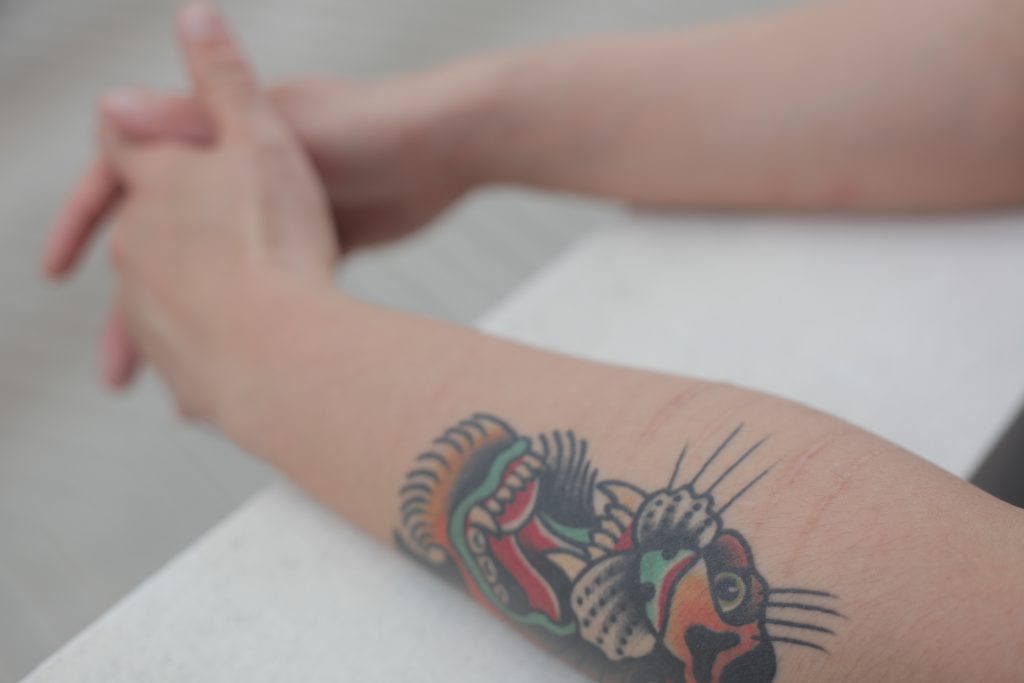
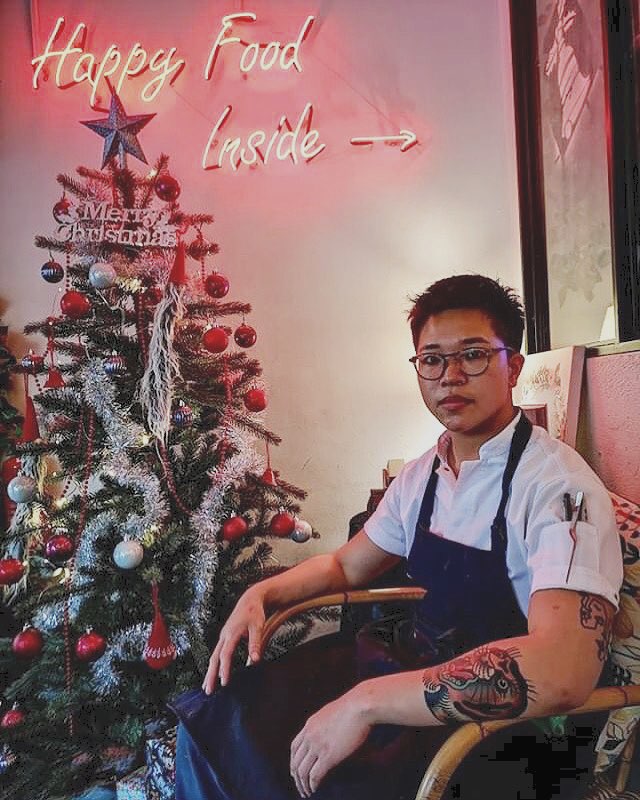
Then, I Came Out To My Parents
My mum was the first to find out. She got very emotional and over our first dinner together after she found out, she kept saying things like “the Bible is my standard, is it yours?” And, “I have a conscience, I hope you do too.” She made it clear that I am someone with no morals if I choose to be this way. That really broke my heart, because I was trying to be truthful and honest with them. I was really hoping to communicate with them, instead of us shutting each other out. When I told her about how I felt, about how I never had feelings for guys, and about all the painful struggles I had internally growing up, all she said was, “are you being honest right now? Why are you lying?”She also once said to me, “people like you never [use to] exist,” and, “people like you put us through so much pain and shame.”My dad told me that he was not going to judge me but God will, and reiterated that he will never ever change his mind on marriage being only between a male and female. I used to be suicidal. Coming out was my way of preserving my life and to respect the life that my parents have given me. Yet, my parents can only see this as my greed — that I am being selfish and trying to hurt them by being transgender. It really breaks my heart to be rejected by the people who brought me up, and whom I still love dearly. It is the very reason why I feared coming out to them in the first place. It is also disappointing that none of my brothers (except for one) ever acknowledged me for who I am either, or to be there for me.
Relearning How To Live Life
I am still trying to come to terms that my family will never accept me for who I am. The rejection still hurts, but I remind myself that it is equally hard for them to process the shock because of the many emotions involved. And I try not to let their rejection get to me. I understand that if i didn’t change my way of thinking, I would have felt the way that they are feeling now — it took me a long time to understand that they are not out to be negative towards me, it is just what they were taught to do. However, I live with guilt every single day knowing that my parents still love me. I see it through their littlest actions: when they ask me if I have eaten yet or when I will be reaching home. This guilt has often made me feel that I am not deserving of all the efforts they have put into raising me. But I know that I want to live true to how I feel. With that conviction, I also know that I have to overlook my parents’ expectations and the expectations that I put on myself. When I made the decision to be openly transgender, my whole belief system was turned upside down. But being forced out of what I am familiar with helped me get out of the pit that I had put myself into all those years.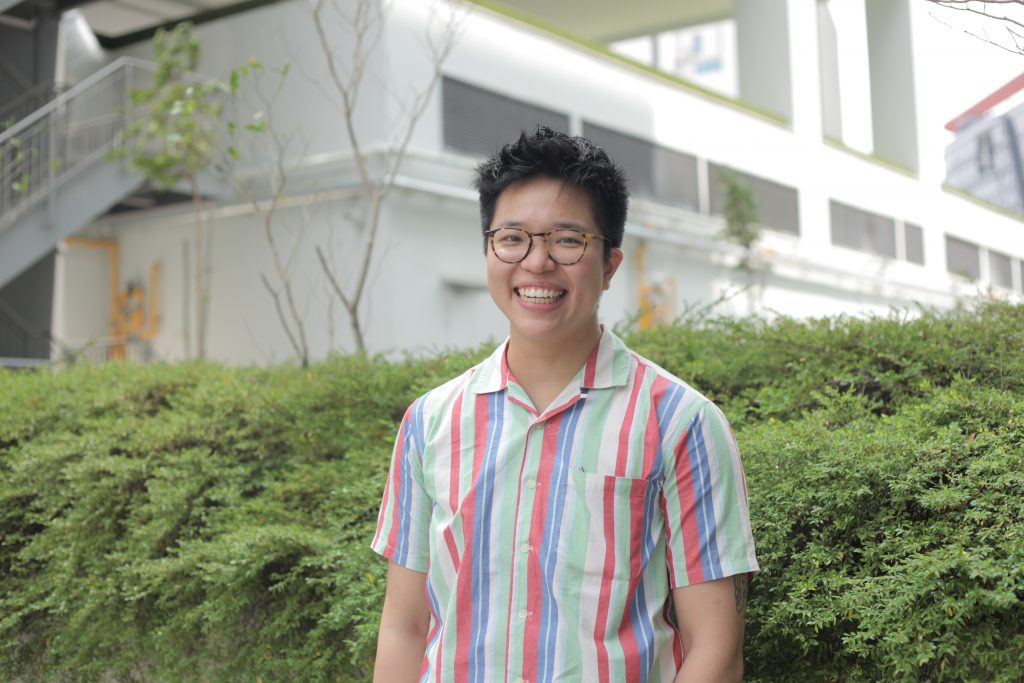 I don’t know if I can ever truly be the person I want to be — someone who is kind, and all the positives — but I think my suffering has really opened my eyes.
The rate of suicide among transgender individuals is very high. Being able to confront my denial and feelings has helped to phase out the many suicidal thoughts I use to have, because I now know who I want to be and how I want to live. Because of what I went through, I am able to persevere. However, there are many, many people who do not have the resources or support they need, and it is very hard for them to break out.
Being able to look inward and confront myself has changed my life, and it is the one thing I hope for those who are going through similar situations: Look within yourself, and learn to be vulnerable.
This story is written by Millennials of Singapore, as told to us by the featured individual.
-
Editor's note:
This is a personal story and not a generalisation of the community. We have included specific mentions of a religion in this article solely for context purposes, the Millennials of Singapore team does not condone religious discrimination and persecution.
Also read: My Sexuality, My Right: “A Stranger Wanted Me To Apologise For My ‘Lesbian Appearance'".
I don’t know if I can ever truly be the person I want to be — someone who is kind, and all the positives — but I think my suffering has really opened my eyes.
The rate of suicide among transgender individuals is very high. Being able to confront my denial and feelings has helped to phase out the many suicidal thoughts I use to have, because I now know who I want to be and how I want to live. Because of what I went through, I am able to persevere. However, there are many, many people who do not have the resources or support they need, and it is very hard for them to break out.
Being able to look inward and confront myself has changed my life, and it is the one thing I hope for those who are going through similar situations: Look within yourself, and learn to be vulnerable.
This story is written by Millennials of Singapore, as told to us by the featured individual.
-
Editor's note:
This is a personal story and not a generalisation of the community. We have included specific mentions of a religion in this article solely for context purposes, the Millennials of Singapore team does not condone religious discrimination and persecution.
Also read: My Sexuality, My Right: “A Stranger Wanted Me To Apologise For My ‘Lesbian Appearance'".Mixing Business And Personal
There’s a saying that you should never work with friends, otherwise, you have to be prepared for the possible death of that friendship. Working with family or a loved one? Even tougher - how do you even deal with them back at home after fighting at work? In our Singaporean culture especially, where we are too non-confrontational and would feel too paiseh to offend anyone, that ‘anyone’ being someone we love makes it that much more problematic. And no one wants to be stuck in that awkward dilemma between being nice and having to do their job right. Similarly, there’s a long-standing belief that you should never ‘shit where you eat’. Some would rather leave a company than start a romantic relationship with their colleague. Yet today, all these beliefs seem to be more of a myth, as we see more Singaporeans choosing to work with friends, continuing their family businesses, and also being co-bosses to their businesses with their romantic partner. We spoke to some couples who chose to hustle together to find out how the heck they survive as partners-in-crime in all aspects of their life.Daniel and Natasha - From Boss And Employee To Lovers
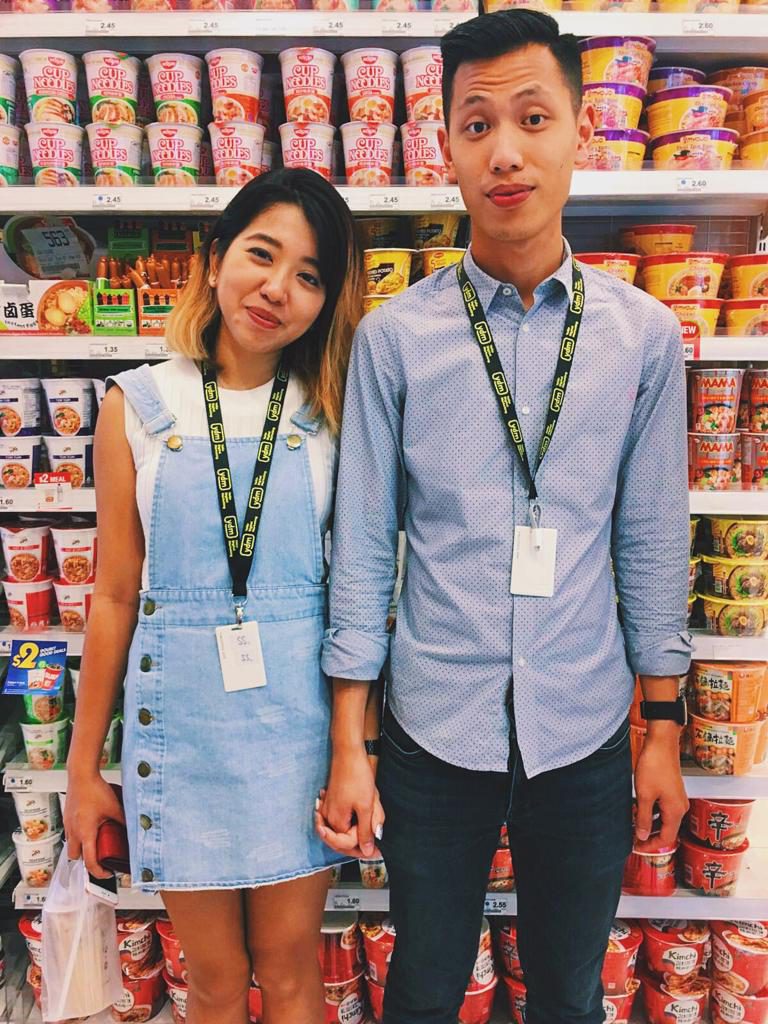
Wei Zhang & Pauline - A Marriage Of Work And Play
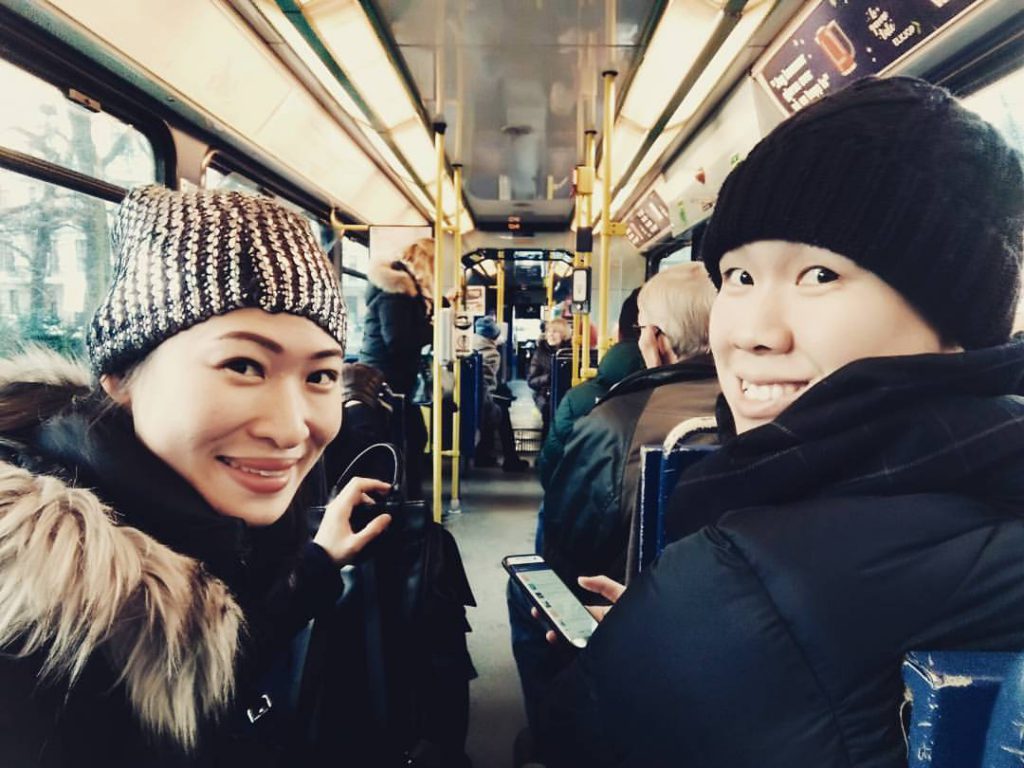
Nerissa and Abel - No Sweat In Working Together

